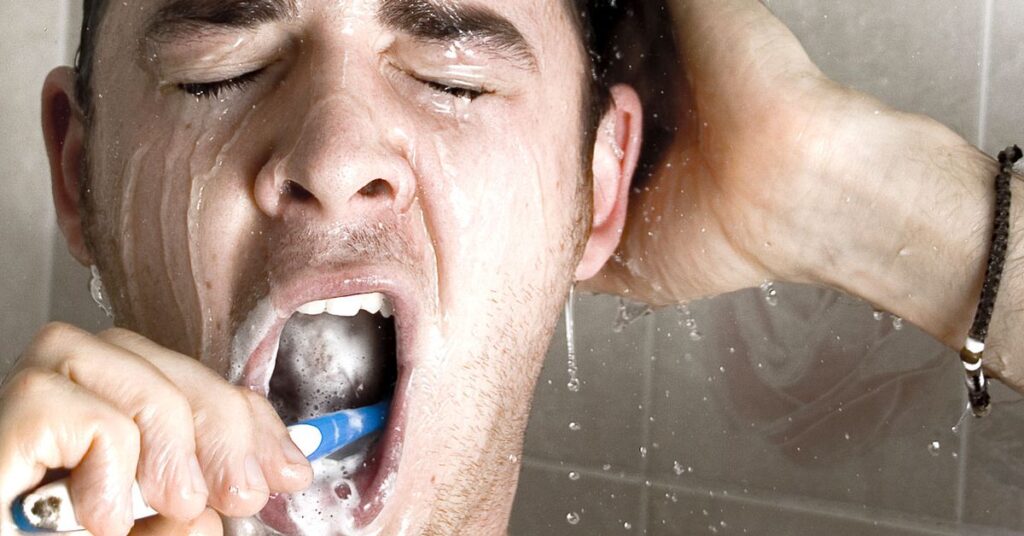Should You Brush Your Teeth In The Shower?

Mornings are usually one of the busiest times of the day; chances are, you probably spend the first hour after you wake up rushing around trying to get as much sorted as possible. This, inevitably, means hurrying breakfast or speeding through brushing your teeth. If you’re stepping into the shower and running low on time, you might think it best to kill two birds with one stone and brush your teeth whilst in the shower.
But, whilst this might seem like the best option, it may not be the most hygienic one. Whilst brushing your teeth might not necessarily cause issues for your oral health, there is the potential that it could lead to other problems instead. Let’s take a look at whether or not you should brush your teeth in the shower.
Issues With Brushing Your Teeth In The Shower
Water Temperature
Typically, you’ll have showers using hotter water than that which you brush your teeth with. Hot water in the shower can cause your toothbrush bristles to soften which can make it less effective in brushing your teeth.
Dental experts recommend that you brush your teeth using an electric toothbrush for a more thorough clean and, although most electric toothbrushes are waterproof, it is not recommended that you submerge your toothbrush in water as it could not only damage the bristles, but the mechanism inside the toothbrush, too.
Cross-Contamination
When you are sharing the same water source from which you are brushing your teeth and cleaning your body, you may be transferring germs from parts of your body to your toothbrush. This could compromise your immune system and may lead to unwanted illness. Your showerhead can harbour bacteria and, when you brush your teeth with water from the shower, you could be exposing your toothbrush to that bacteria. Sharing a shower with another person can also increase the risk of cross-contamination.
Can I Leave My Toothbrush In The Shower?
Leaving your toothbrush in the shower creates the perfect environment for bacteria growth. It can also expose your toothbrush to bacteria which may be present in the shower, causing further problems. In warm, humid environments, bacteria can build up on your toothbrush which can potentially lead to oral health issues such as tooth decay.
Your toothbrush may also be exposed to chemicals used in your shower when cleaning or from your cleaning products which, if ingested, could be harmful. It is recommended that you store your toothbrush in a dry, clean place and look to replace your toothbrush every three to four months, or sooner if the bristles become frayed or noticeably worn.
You should also avoid brushing your braces or Invisalign aligners when in the shower as you risk damaging the aligners through warping due to the warm temperatures, or, if you brush them using a toothbrush, you can make the aligners appear cloudy due to scratches on the surface.
If you have full dental implants or dentures, then you should also avoid brushing your teeth in the shower as you risk damaging the implants with the temperature. If you have only recently had dental implant surgery, then brushing your teeth in the shower can put you at a higher risk of infection.